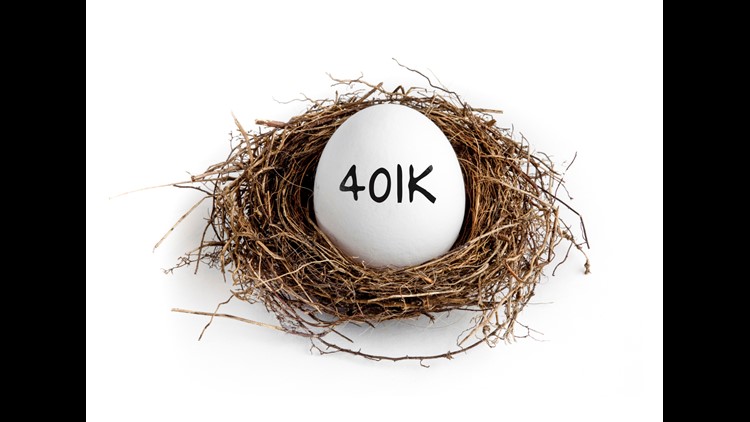![635973666601754624-ThinkstockPhotos-178634914.jpg [image : 83607092]](http://www.gannett-cdn.com/media/2016/04/27/USATODAY/USATODAY/635973666601754624-ThinkstockPhotos-178634914.jpg)
If you have a 401(k) from a former employer, there are a few things you could choose to do with your account. You could cash it out, which is almost never the best option. You could leave it where it is, or combine it with your current employer's plan. Or, you can roll it into an IRA, which can be an excellent option. However, it's important to know what you're getting into before you roll over, so here are three things you need to know before you make your decision.
1. Should you roll your 401(k) over, or are you better off leaving it alone?
Some 401(k) holders have no choice but to roll over. If their account balance is less than a certain threshold, the plan may require that the account either be rolled into a new employer's plan or an IRA.
In addition to this, there are a few good reasons you might want to choose to roll over into an IRA. The most significant difference between a 401(k) and an IRA is the amount of investment options available. While 401(k) investments are generally limited to a dozen or so mutual funds, IRA money can be invested in virtually any stocks, bonds, or funds you want -- there are literally thousands of possibilities.
So, an IRA gives you the ability to have a more active role in your investing. Of course, if you'd prefer to invest in a few funds and keep your retirement investing on autopilot, that's also an option.
Another thing to take a look at is cost savings. According to Matthew Sadowsky, Director of Retirement and Annuities at TD Ameritrade:
The popular conception is that all 401(k) funds have institutional pricing that's cheaper than that available to retail investors. While this does happen, it's not always correct. Oftentimes, parallel securities (those with similar holdings) can be found for a significantly lower cost.
For example, if your 401(k) offers a fund that tracks the overall stock market with an expense ratio of 0.3%, you could potentially invest in the Vanguard Total Stock Market ETF (NYSEMKT:VTI) which carries an expense ratio of 0.05%. This may not sound like much, but could save you significant money over the long run.
2. What should you do with the money after you roll over?
One of the first things you need to decide is whether you want to take an active or passive approach to your retirement investing.
If you don't have the time or interest to research stocks and/or you've been happy with your 401(k)'s performance, there's absolutely nothing wrong with constructing a portfolio of funds similar to those that you held in your 401(k). Be sure to look for funds with low expense ratios, and if you need help finding some good ones to invest in, check out this other article.
On the other hand, if you'd rather take a more active approach, there are a few questions you need to ask yourself.
- How much tolerance do I have for market risk? If the money in your account represents most of your retirement savings, you probably shouldn't invest in too many "risky" stocks. On the other hand, if you have a large amount of money stashed elsewhere in lower-risk investments, you may be able to handle a little more volatility.
- How long until I need the money? Your investment time frame determines the type of stocks that are suitable for your portfolio. There are some stocks that tend to increase profits every year, and grow their dividends at a steady rate (Verizon Communications (NYSE:VZ)is an example that immediately comes to mind). Others can be pretty volatile from year to year, but tend to do quite well over any long time period. For example, Warren Buffett has specifically recommended that prospective Berkshire Hathaway investors not buy shares unless they plan to hold them for at least five years.
- Do I want to prioritize income or growth? Dividend stocks are great, and are by no means just for income-seekers, but if you are going to rely on your investments for income, it somewhat limits your choices.
Finally, whichever approach you take, one of the smartest things to do is to take advantage of the tools at your disposal after you roll over. Your brokerage likely has many retirement-planning tools, as well as stock research, screeners, and tools that can help you construct a diversified, risk-tolerant portfolio.
3. Know what not to do
When investing, knowing what mistakes to avoid can be just as important as knowing what you should do, and this certainly applies to 401(k) rollovers. Specifically, Sadowski offers the following suggestions:
Is it right for you?
Naturally, at The Motley Fool we're generally in favor of rolling over into an IRA and building an excellent stock portfolio, but we realize that this approach isn't for everyone. If you want to take full control of your retirement and have the time and interest to do it right (or if you don't have a choice), rolling over into an IRA could be the smart move for you. On the other hand, there's nothing wrong with keeping your retirement savings in a 401(k) as long as the investments are reasonably priced and you're generally happy with the plan's performance.
SPONSOR CONTENT: The $15,978 Social Security bonus most retirees completely overlook
If you're like most Americans, you're a few years (or more) behind on your retirement savings. But a handful of little-known Social Security secrets could help ensure a boost in your retirement income. In fact, one MarketWatch reporter argues that if more Americans knew about this, the government would have to shell out an extra $10 billion annually. For example: one easy, 17-minute trick could pay you as much as $15,978 more... each year! Once you learn how to take advantage of all these loopholes, we think you could retire confidently with the peace of mind we're all after. Simply click here to discover how you can take advantage of these strategies.
Matthew Frankel owns shares of Berkshire Hathaway. The Motley Fool owns shares of and recommends Berkshire Hathaway, TD Ameritrade, and Verizon Communications. Try any of our Foolish newsletter servicesfree for 30 days. We Fools may not all hold the same opinions, but we all believe that considering a diverse range of insights makes us better investors. The Motley Fool has a disclosure policy.
The Motley Fool is a USA TODAY content partner offering financial news, analysis and commentary designed to help people take control of their financial lives. Its content is produced independently of USA TODAY.



